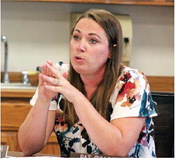Starting a dialogue


Medford schools starts community discussion about bullying
The stated goal of the June 8 Medford School District Policy Committee meeting was to...


Medford schools starts community discussion about bullying
The stated goal of the June 8 Medford School District Policy Committee meeting was to...